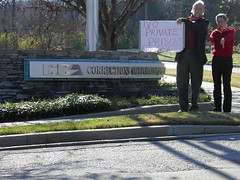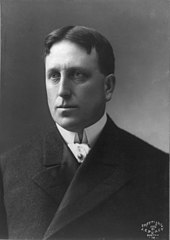But someone has composed this google map that gives the big picture. I don’t know if this map is current or accurate, but the spot checks I’ve made show markers for real prisons. Did you know there were so many?
Apparently,
- the reddish circles are county prisons;
- the red arrows are state prisons for men like Valdosta State Prison;
- the yellow arrows are state prisons for women (Pulaski) or juveniles (Arrendale), except Washington State Prison appears to be back to housing men;
- the blue arrows are Regional Youth Detention Centers (RYDC);
- and the green arrows are at least some of CCA’s private prisons,
 Prisons are
bad economics, producing no longterm improvement in employment, and risking closure, leaving communities with expensive white elephants.
We don’t need a private prison in Lowndes County, Georgia.
Spend those tax dollars on rehabilitation and education instead.
Follow
this link
to petition the Valdosta-Lowndes County Industrial Authority.
Prisons are
bad economics, producing no longterm improvement in employment, and risking closure, leaving communities with expensive white elephants.
We don’t need a private prison in Lowndes County, Georgia.
Spend those tax dollars on rehabilitation and education instead.
Follow
this link
to petition the Valdosta-Lowndes County Industrial Authority.
-jsq







 Frequent attendees told me the audience was much larger
than in previous years, and one attributed that to the recent
school consolidation referendum.
Sitting side by side were Chamber Chair Tom Gooding and
FVCS President Sam Allen.
Frequent attendees told me the audience was much larger
than in previous years, and one attributed that to the recent
school consolidation referendum.
Sitting side by side were Chamber Chair Tom Gooding and
FVCS President Sam Allen.
 Jeff Hanson introduced the legislators.
He’s the Chair of the Chamber’s
Jeff Hanson introduced the legislators.
He’s the Chair of the Chamber’s
 “Dr. Z” as Tim Golden called him.
“Dr. Z” as Tim Golden called him.

